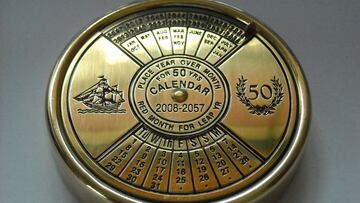Since when are there leap years? How was this day recovered in the past?
Throughout history mankind has been trying to keep the calendar in sync with annual events which periodically requires a tweak to the length of the year.

Earthlings will get an extra day in 2024 as it is a Leap Year. These happen nearly every four years. Without them our calendars would soon be out of whack with the seasons and annual celebrations like Christmas would take place in the summer instead of winter.
Ever since calendars were invented basically, mankind has had to contend with them drifting. Early civilizations at least as far back as the Bronze Age used lunisolar systems to map out the year. These use observations of the Sun and the Moon but there is a gap between Earth’s journey around the Sun and the observed lunar cycles of roughly 11 days.
Since when are there leap years? How was this day recovered in the past?
Many ancient civilizations’ calendars would deal with the discrepancy in their lunisolar calendars by adding extra months, known as intercalary or interstitial months, periodically to keep their calendar in sync with the Earth’s orbit around the Sun. However, for the Romans the ill-defined method for their calendar and the consuls deciding when to shorten or extend the year led to it becoming completely unpegged from the solar year.
Julius Cesear was having none of this and to get things back on track he added two extra-long months to the calendar in 46 BC. Starting 1 January 45 BC his Julian Calendar was implemented. This used the Egyptian calculation of 365 days in a year with one small tweak, as opposed to the Roman 355 days.
The Julian calendar was 365.25 days to be exact, so that meant that every four years an extra day, Leap Day, was added to the calendar. Unfortunately, the Earth’s orbit takes 365.242 days to get around the Sun. This meant that by the 16th Century the calendar was getting out of sync and needed updating.
In stepped Pope Gregory XIII who commissioned a modified calendar. Leap Day was kept but Leap Years were eliminated for years that were divisible by 100 but not 400. So that means that while 2000 was a Leap Year, 2100, 2200, 2300 will not be. The Gregorian calendar is not perfect though, calculating the year at 365.2425 days, and in about 2,600 years will be off by a day.






